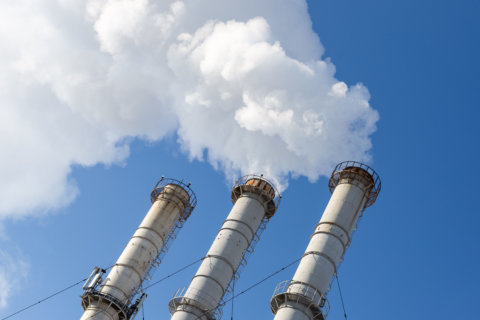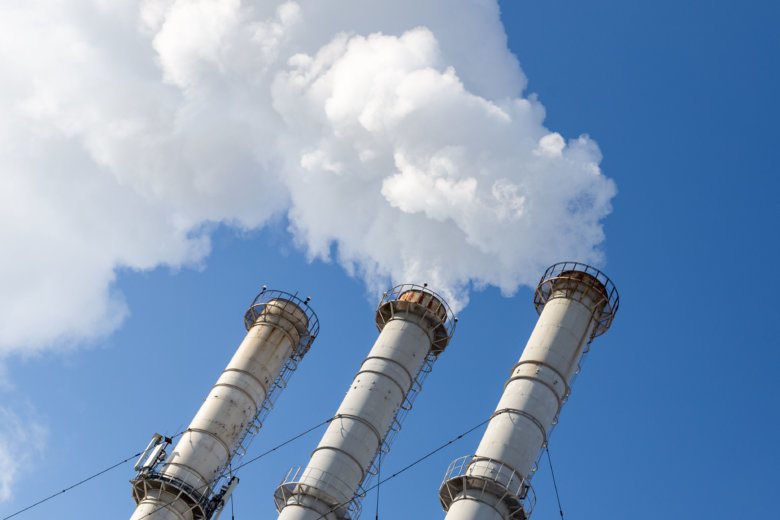
(CNN) — There has been a drastic drop in the enforcement of environmental regulations by the Environmental Protection Agency under the Trump administration, an advocacy group will say in a report issued to Congress on Tuesday.
The Environmental Integrity Project said it had analyzed years of federal data and found declines in inspections, polluters charged with crimes, civil penalties, pollution reductions and EPA enforcement staffing.
The group said in its new report that it had “compared the federal data from last year to two decades of past EPA reports as well as federal court records and other documents, to reach several conclusions.”
EPA conducted fewer inspections for environmental violations last year (10,612 inspections), “less than 60% of the annual average since 2001,” the report states.
The report also said that while the agency sends the worst environmental polluters to the US Justice Department for civil prosecution, President Donald Trump’s EPA does so less frequently than previous years: “EPA sent 123 such cases to the Justice Department in fiscal year 2018, up slightly from 2017, but far below the annual average of 304 cases during the George W. Bush Administration and 211 during the Obama years.”
Likewise, the report says there has been a decrease in criminal prosecution referrals. According to the environmental watchdog’s analysis, EPA opened 129 criminal cases in 2018, about one-third of the levels reported between 2008 and 2013.
The number of new criminal cases has declined sharply since 2013, the start of the second term of the Obama administration, the report states.
Asked for comment, EPA spokesperson James Hewitt said, “EPA cannot fairly review or verify any of the findings in the EIP’s embargoed report and cannot comment on the status of current enforcement cases. The Agency is committed to the vigorous enforcement of our nation’s environmental laws and inaccurate suggestions to the contrary only embolden noncompliance with the law. EPA enforcement is developing new initiatives to protect rivers and waters from unlawful pollution, to protect sources of drinking water, and to reduce the exposure of our most vulnerable populations to lead. Year-end enforcement metrics are inherently variable and are based on the facts and circumstances of the cases pursued in a year by our dedicated career staff.”
“EPA’s enforcement workforce has been shrinking for years, but the Trump administration wants to cut it back even further,” said Eric Schaeffer, a former director of civil enforcement at EPA who’s now the executive director of the Environmental Integrity Project. “Those cutbacks are leaving communities — including those with high poverty levels and African-American or Latino neighborhoods — exposed to public health risks, while letting polluters off the hook for serious violations of the law.”
According to the group, EPA estimates that violators will spend $3.95 billion to comply with enforcement actions in 2018, the lowest amount since 2003, after adjusting for inflation.
These funds would typically be spent on things like equipment to curb pollution.
Due to years of budget cuts, the agency has also seen a decrease in its enforcement workforce. According to the Environmental Integrity Project’s analysis, the agency had 1,842 full-time equivalent staff last year, a 16% decrease from 2006. The number is expected to drop further in 2019, the report says.
Schaeffer will testify before a House Energy and Commerce subcommittee Tuesday. EPA’s assistant administrator in the office of enforcement and compliance assurance, Susan Bodine, will be on the hot seat facing questions about the agency’s enforcement practices under the Trump administration.
At EPA Administrator nominee Andrew Wheeler’s Senate confirmation hearing in January, he was asked about the decline in enforcement at EPA under the Trump administration.
At the time, Wheeler, the acting EPA administrator said, “We are working very hard on compliance assurance. I think the agency has for a number of years. I think the more compliance assurance that we have, the fewer enforcement actions that we need to take.”
Wheeler told lawmakers that reports suggesting EPA’s enforcement is declining are misleading.








